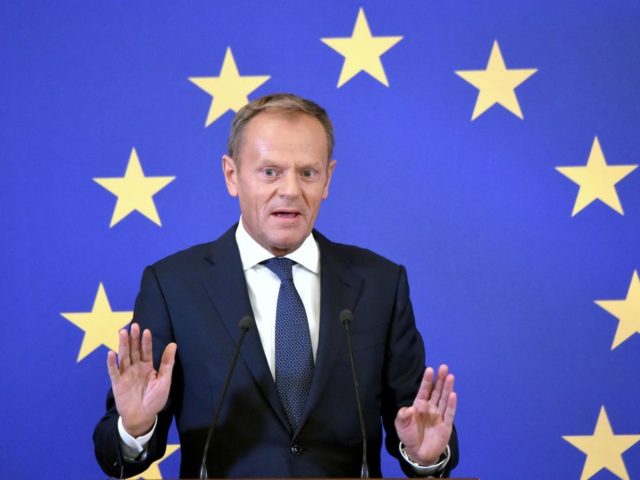British Prime Minister Boris Johnson wrote a four-page letter to European leaders before a week of meetings with top EU officials and heads of state in what may be the last attempt to renegotiate Theresa May’s failed withdrawal agreement, only to see his proposals immediately rejected.
With just ten weeks to go until the promised “do or die” Brexit day, on which the Prime Minister has vowed to take the country out of the European Union with — as is his preferred outcome — or without a deal, Mr Johnson called on European leaders to consider a renegotiation.
The present deal on offer from the European Union is the withdrawal agreement signed up to by anti-Brexit former Prime Minister Theresa May, but it has been widely derided and rejected three times in Parliament. Mr Johnson himself voted against it twice but caved in on the third attempt to force it through Parliament, a u-turn that left Brexit leader Nigel Farage questioning the Prime Minister’s sincerity.
A detailed letter addressed to the President of the European Commission Monday night saw Johnson call the so-called Irish backstop, a mechanism written into Theresa May’s deal, “anti-democratic” and called for alternative arrangements to be made. In separate remarks, the Prime Minister said of his confidence that Europe would give in to his demands: “We will be ready to come out on Oct. 31 – deal or no deal… Our friends and partners on the other side of the Channel are showing a little bit of reluctance to change their position – that’s fine – I am confident that they will.”
The European Union reacted to Mr Johnson’s request as they have done to every previous attempt to renegotiate the deal dictated to Britain by Brussels, with a flat refusal. European Commission President Donald Tusk wrote Tuesday to accuse Mr Johnson of not only having no better alternatives, but also of supporting a hard border in Ireland.
In a three-sentence reply to Mr Johnson’s four-page letter, Tusk wrote: “The backstop is an insurance to avoid a hard border on the island of Ireland unless and until an alternative is found. Those against the backstop and not proposing realistic alternatives in fact support reestablishing a border. Even if they do not admit it.”
Mr Johnson is due to meet with European leaders this week but finds himself in the same position as Theresa May did earlier in the year, when her trips to European capitals were prempted by European leaders declaring what the outcomes of the talks would be before they happened.
Also weighing in was Irish prime minister Leo Varadkar, who thanks to Brexit is enjoying a moment of importance on the world stage. Going public after speaking to Boris Johnson for an hour by telephone on Monday, the Irish leader insisted that the withdrawal agreement could not be renegotiated.
A spokesman for the Prime Minister said of his plans for the week: “Ahead of the G7 the prime minister believes it is important to speak to the leaders of France and Germany to deliver the message that he has been setting out through the phonecalls he’s had with leaders and face to face.
“It is likely they will discuss other issues: foreign policy issues, security issues and so on, but clearly Brexit will form a key part of both bilateral meetings.”
Later this week the leaders of France, Britain, Germany, Japan, Canada and Italy will meet in Biarritz, France for the G7 heads of states meeting. Although the European Union is not a state in its own right or a member of the G7, two EU presidents were due to attend the meeting.

COMMENTS
Please let us know if you're having issues with commenting.